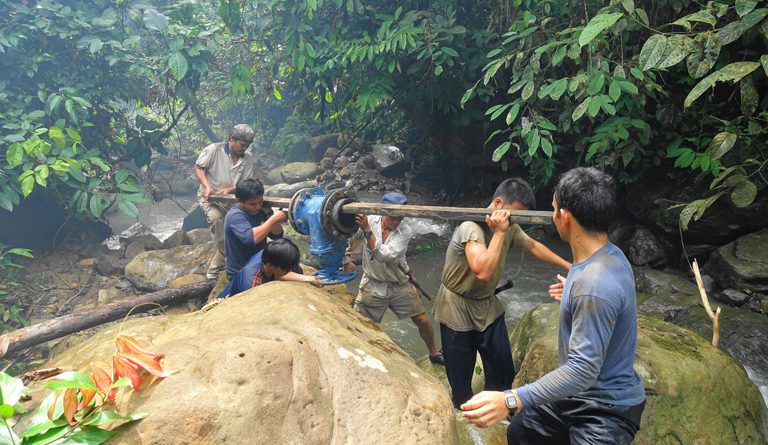Will Malaysia become Southeast Asia’s clean energy leader? (commentary)
- Malaysia sits at a unique crossroads. Last year’s election was a wake-up call for the powers that be, with more than 60 years of entrenched power coming to an unexpected and abrupt end. While much of our region, Australia included, slips further into the pockets of fossil fuel interests, Malaysia has the opportunity to position itself as Southeast Asia’s clean energy and renewable industries leader.
- Australia now has the highest proportion of households with PV systems on their roof of any country in the world, in spite of the current Government’s hopeless commitment to fossil fuels. The Australian legislation of 2012 is a template for other countries intent on responding to the climate crisis.
- Malaysia can be a champion for our region. Where it chooses to sit on this spectrum between leader and follower in the new geopolitical relationships evolving from the transition to renewable energy is yet to be seen, but the opportunity to lead in the transformation in South-East Asia is wide open.
- This post is a commentary. The views expressed are those of the author, not necessarily Mongabay.
A silver lining of global warming is that it is forcing every nation to rethink its future, to open its mind to new possibilities. The latest IPCC report gives the world only 12 years to radically cut greenhouse gas emissions or condemn future generations to climate change catastrophe. There is no choice but to act.
For developed and developing countries alike, this shatters old certainties of foreign policy and national development trajectories based on the exploitation and use of fossil fuels. The human death toll and ecosystem and infrastructure collapses worldwide blow away the argument from the fossil fuel industry that it costs too much to change. Inaction is costing us far more.
As a planetary community, we are in a new era, with all the hopes, risks, opportunities, and insecurities that letting go the past brings. As the International Renewable Energy Agency (IRENA)’s latest report, A New World, states: “[J]ust as fossil fuels have shaped the geopolitical map over the last two centuries, the energy transformation will alter the global distribution of power, relations between states, the risk of conflict, and the social, economic and environmental drivers of geopolitical instability.”
Malaysia sits at a unique crossroads. Last year’s election was a wake-up call for the powers that be, with more than 60 years of entrenched power coming to an unexpected and abrupt end. While much of our region, Australia included, slips further into the pockets of fossil fuel interests, Malaysia has the opportunity to position itself as Southeast Asia’s clean energy and renewable industries leader.
The good news is, we are not in totally unchartered waters. For decades new renewable energy technologies and new policy frameworks to roll them out have been tried around the world. Distributed energy, micro hydro, off-grid and localized grids, pumped hydro storage, rooftop solar, batteries, wind, large scale solar, and energy efficiency are now the most cost-effective, accessible, and environmentally friendly means of electrification, lifting people out of poverty, and reducing emissions.
Surely all a nation committed to addressing global warming has to do is grab what works, modify it for local conditions and culture, and implement it. But in countries like Australia and Malaysia, it is not that simple.
Is it possible for a country rich in fossil fuels and dependent on them for revenue and energy to change direction? Is it possible for governments to stop thinking in terms of centralized mega projects — dams, mines, power stations — and embrace distributed systems?
This is the question I asked myself when I was elected to the Australian Senate in 2004 on a platform of strong action on global warming. Australia had a huge reliance on fossil fuels — coal and gas — both to generate energy at home and as exports. What would it take to change that?
Christine Milne is a former Australian Senator and was leader of the parliamentary caucus of the Australian Greens from 2012 to 2015. In 2018, Christine was appointed as an Officer of the Order of Australia for domestic and global contributions to the protection and preservation of the natural environment.
Source : MongaBay

